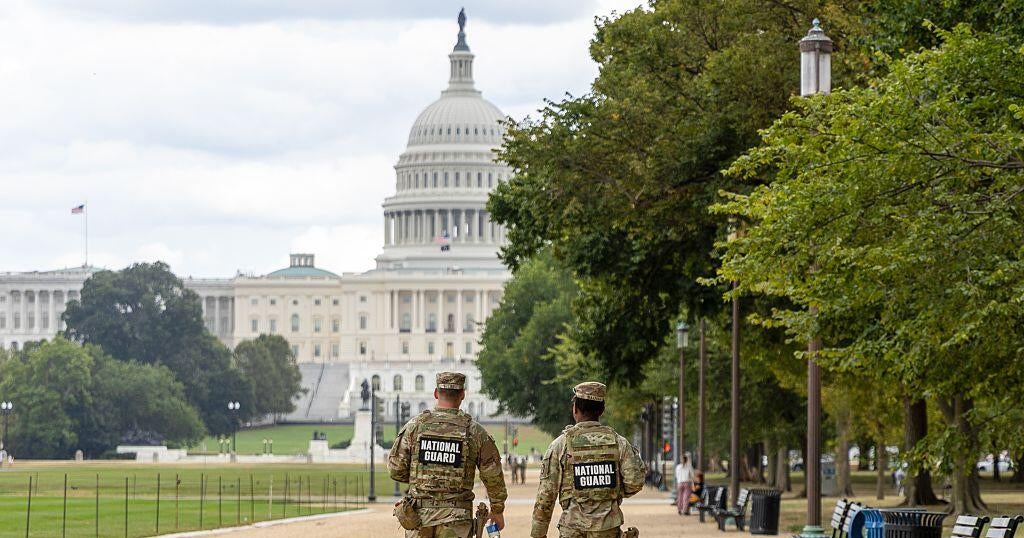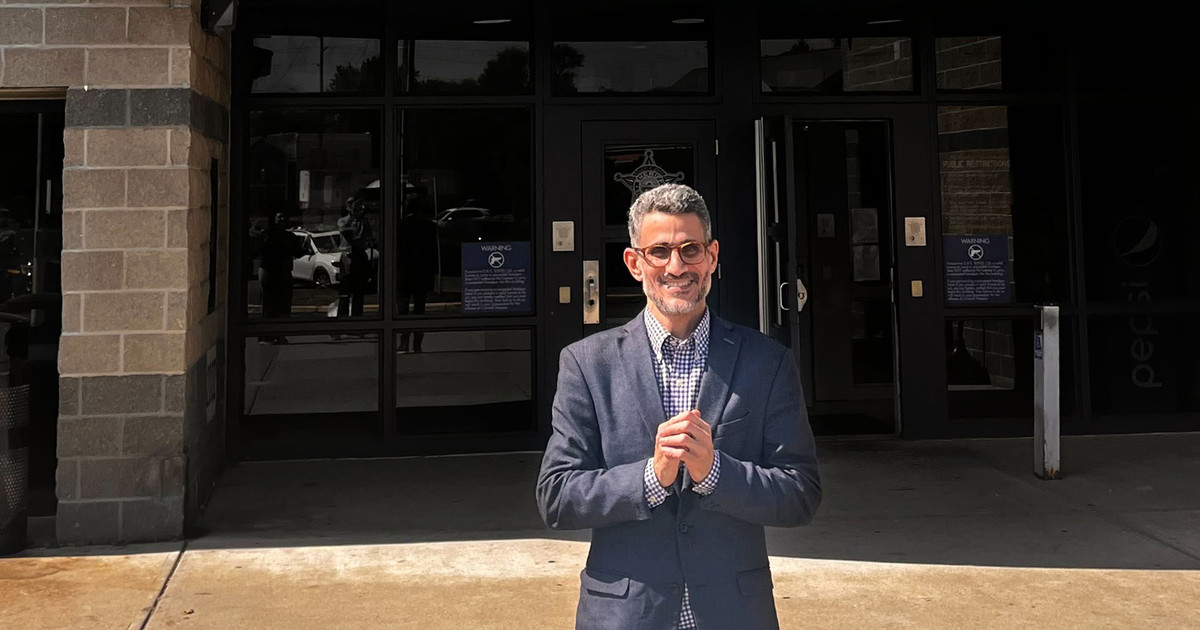
Washington — The Trump administration has recently highlighted its crime crackdown in Washington, D.C., boasting about increased arrest numbers and a reduction in violent crime. However, this surge in law enforcement resources has not been mirrored in the judicial system, which continues to grapple with a significant vacancy crisis. Judicial vacancies have resulted in a troubling backlog of cases, hampering the administration of justice for the district’s residents.
The D.C. courts have faced this crisis for years, largely due to a high number of unfilled judicial positions. The resolution to this issue rests squarely with the president and the Senate, as established by Congress over 50 years ago. Currently, there are 13 vacancies on the D.C. Superior Court, the district’s trial court, with two additional judges on extended medical leave. By January, the situation is expected to worsen, with two sitting judges set to retire, potentially leaving 15 out of the Superior Court’s 62 positions unfilled.
On the D.C. Court of Appeals, two of its nine seats remain vacant, one of which has been empty since November 2013, with no nominees currently awaiting Senate approval.
“With vacancy rates nearing 25% on the trial court, we are set up to fail those who are depending on us for fair and timely legal outcomes,” said Douglas Buchanan, spokesperson for the D.C. Courts. “Our current operational capacity is simply not sustainable, and it is set to worsen for those we serve.”
The crisis illuminates the unique challenges faced by D.C. as the nation’s capital. While judges in other jurisdictions are either elected by voters or appointed by governors, D.C. judges are nominated by the president and confirmed by the Senate, similar to the process for federal judges. This system was established under the District of Columbia Home Rule Act of 1973, which created a seven-member Judicial Nomination Commission that submits a list of three candidates for each vacancy. The president then selects one nominee for Senate confirmation.
“This requires multiple components to work in concert, particularly since D.C. lacks a senator who can advocate for its needs in the confirmation process,” remarked Joe Musso, president of the Trial Lawyers Association of Washington, D.C.
In recent years, both President Trump and President Joe Biden have focused on filling federal judicial vacancies, with both administrations appointing over 230 federal judges. However, the local courts in D.C. have not received the same level of attention.
In December, the Senate had the opportunity to confirm ten of Biden’s nominees for local courts, but these nominations were blocked, opening the door for Trump to appoint his own candidates. The Judicial Nomination Commission has submitted a list of candidates for every existing vacancy on the Superior Court and Appeals Court, yet progress remains stalled.
Trump has nominated four individuals to the D.C. Superior Court, with one nomination advancing to a Senate vote after passing through the Homeland Security and Governmental Affairs Committee in July. Notably, two of these nominees are for positions that have been vacant since 2020.
“President Trump has prioritized filling vacancies in the Superior Court, and I strongly support this initiative,” stated Jeanine Pirro, the U.S. attorney for the District of Columbia. “The lack of judges not only affects the District and its legal professionals but also has serious implications for individuals awaiting trials that could affect their civil liberties.”
While the Senate Judiciary Committee oversees federal judicial nominations, the Homeland Security and Governmental Affairs Committee is responsible for hearings related to D.C. court nominees. A spokesperson for Sen. Rand Paul, the Republican chair of the Homeland Security Committee, indicated that the committee is processing the remaining nominations “according to our standing rules and procedures and will announce a hearing at the appropriate time.”
However, it remains uncertain if there is sufficient support within the Senate to advance the president’s D.C. court nominees, particularly with a looming September 30 deadline for government funding and the need to approve a backlog of Trump’s executive branch nominees.
As a result of these vacancies, cases in the Superior Court continue to pile up. In the criminal division, trials for those accused of serious felonies are being scheduled as far out as late 2027 and early 2028.
“This is not fair to the victims of these serious crimes, nor to the defendants who await their day in court while in custody,” Buchanan stressed.
Trump’s crime crackdown was initiated in response to claims of rampant crime in the capital, despite data indicating a decline in crime rates in recent years. Last month, the president deployed the National Guard to D.C. and placed the Metropolitan Police Department under federal control for a 30-day period, a measure authorized by the Home Rule Act.
Although the 30-day federal control of local police expired on September 10, National Guard troops will remain on the streets of D.C. through November. Mayor Muriel Bowser has indicated that local police will continue to collaborate closely with federal law enforcement indefinitely.
As part of Trump’s approach to addressing what he termed a “crime emergency,” he signed an executive order last month directing prosecutors to pursue federal charges and pretrial detention for individuals arrested in D.C. Nonetheless, government lawyers with the U.S. Attorney’s Office in D.C. have struggled to secure indictments in recent cases, with some cases resulting in only misdemeanor charges that do not require grand jury indictments.
The U.S. Attorney’s Office also oversees prosecutions for felonies and most misdemeanors in the local trial court. Between January and March, the most recent publicly available data indicates a slight increase in felony prosecutions compared to the same period in 2024.
However, as Trump seeks to curb crime and hold alleged offenders accountable, he faces a court system that has long been hindered by a lack of judges to hear and resolve cases.
“Criminal defendants are often left sitting in jail on mere charges, presumed innocent under the Constitution,” Musso remarked.
The surge in cases filed in the Superior Court predates Trump’s crackdown. Data shows an 83% increase in new case filings from 2021 to 2024, with the court on track to meet or exceed last year’s total of 56,627 new cases in 2025. The criminal division alone saw nearly a 40% rise in felony cases filed between 2022 and 2023, along with a 51% increase in misdemeanors brought by the U.S. Attorney’s Office.
In the Civil Division, which manages most civil disputes, judges’ calendars have nearly doubled, now averaging around 500 cases.
“This situation is urgent,” emphasized Tianna Gibbs, a law professor at American University in Washington who studies access to justice. “The administration of justice, public access, and confidence in courts are all at stake.”
Meg McKinney, a family law attorney practicing in D.C., noted that the high number of vacancies particularly impacts the Criminal and Family Court Operations divisions.
“Families facing crises often find themselves in limbo while navigating the court system,” she stated.
In family court, there were between four and six vacancies throughout 2024, alongside a 46% increase in new or reopened cases from 2020 to 2024, according to an annual congressional report. While initial hearings for divorce, custody, and adoption cases are being expedited through magistrate judges, it can still take over a year to secure a trial date, with delays in obtaining judges’ decisions extending even longer.
“It feels like D.C. has been forgotten,” Gibbs observed.
Trump has hailed the operation in D.C. as a triumph, claiming significant crime reductions since the deployment of National Guard troops and federal officers. However, local officials are calling on the federal government to provide additional support for D.C.’s judicial system.
“We have 15 vacancies in the Superior Court that require Congressional approval. Delays in court lead to delayed justice and ultimately make people less safe,” Mayor Bowser remarked during a recent MSNBC interview.
Eleanor Holmes Norton, D.C.’s non-voting delegate in the House, has cautioned that the district is facing a “perpetual vacancy crisis” due to Senate inaction, emphasizing the detrimental impact on public safety and access to justice.
Norton introduced legislation in July aimed at granting the D.C. Council authority over the jurisdiction and organization of local courts, including measures that would allow judicial nominees to be appointed without Senate approval after a 30-day review period.
Despite years of warnings from D.C. officials about the vacancy crisis, appeals for assistance have largely gone unanswered. Letters from members of the D.C. Council, legal organizations, and sitting judges have failed to spur action from the White House or the Senate.
“It feels like our grievances are not reaching those who can enact change,” Gibbs lamented. “D.C. seems to have been overlooked, leaving us without a means to appeal to those in power.”
Many attorneys attribute this lack of action to D.C.’s absence of Senate representation, which limits residents’ ability to advocate for necessary judicial appointments.
“Other jurisdictions do not have to navigate such convoluted processes to fill their court vacancies,” Musso pointed out. “D.C. residents must appeal to a Senate that lacks representation.”
While some senators from neighboring states have supported efforts to reform the judicial nomination process, the proposals have yet to gain traction in the Senate.
In a prior interview, former Sen. Tom Carper of Delaware described the treatment of D.C. regarding judicial nominations as “shameful.”
“The process implies we can suggest names, but confirmation is left to an undetermined timeline,” Carper remarked.
The Senate’s slow pace in confirming D.C. judicial nominees has raised concerns about its impact on public trust in the judicial system.
“The disconnect between those controlling the process and the families affected by


